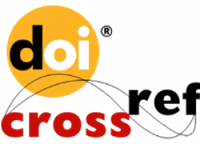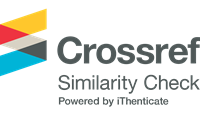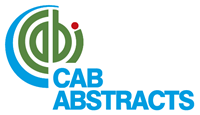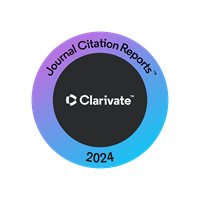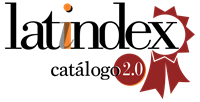
Submission Preparation Checklist
As part of the submission process, authors are required to check off their submission's compliance with all of the following items, and submissions may be returned to authors that do not adhere to these guidelines.- The submission has not been previously published, nor is it before another journal for consideration (or an explanation has been provided in Comments to the Editor).
- The submission file is in Microsoft Word or RTF document file format.
- Where available, URLs for the references have been provided.
- The text is 1.5 line spacing; uses a Times New Roman 12-point font; employs italics, rather than underlining (except with URL addresses); and all illustrations, figures, and tables are placed within the text at the appropriate points, rather than at the end. Papers should have between 12 and 20 pages
-
The text adheres to the stylistic and bibliographic requirements outlined in the Author Guidelines.
- If submitting to a peer-reviewed section of the journal, the instructions in Ensuring a Blind Review have been followed.
Agronomy
The policy of the Editorial board comprises the publication of original articles that may significantly have an impact on Agronomy fiel of knowledge. Only original articles shall be published. Publication of articles depends on the approval of the Editorial Board, base on peer reviews.
Agronomy
The policy of the Editorial board comprises the publication of original articles that may significantly have an impact on Agronomy fiel of knowledge. Only original articles shall be published. Publication of articles depends on the approval of the Editorial Board, base on peer reviews.
Engineering
The policy of the Editorial board comprises the publication of original articles that may significantly have an impact on Agronomy fiel of knowledge. Only original articles shall be published. Publication of articles depends on the approval of the Editorial Board, base on peer reviews.
Agricultural Engineering - Irrigation
The policy of the Editorial board comprises the publication of original articles that may significantly have an impact on Agronomy fiel of knowledge. Only original articles shall be published. Publication of articles depends on the approval of the Editorial Board, base on peer reviews.
Agricultural Engineering
The policy of the Editorial board comprises the publication of original articles that may significantly have an impact on Agronomy fiel of knowledge. Only original articles shall be published. Publication of articles depends on the approval of the Editorial Board, base on peer reviews.
Crop physiology
The policy of the Editorial board comprises the publication of original articles that may significantly have an impact on Agronomy fiel of knowledge. Only original articles shall be published. Publication of articles depends on the approval of the Editorial Board, base on peer reviews.
Crop Protection
The policy of the Editorial board comprises the publication of original articles that may significantly have an impact on Agronomy fiel of knowledge. Only original articles shall be published. Publication of articles depends on the approval of the Editorial Board, base on peer reviews.
Crop Production
The policy of the Editorial board comprises the publication of original articles that may significantly have an impact on Agronomy fiel of knowledge. Only original articles shall be published. Publication of articles depends on the approval of the Editorial Board, base on peer reviews.
Genetics and Plant Breeding
The policy of the Editorial board comprises the publication of original articles that may significantly have an impact on Agronomy fiel of knowledge. Only original articles shall be published. Publication of articles depends on the approval of the Editorial Board, base on peer reviews.
Plant Breeding
The policy of the Editorial board comprises the publication of original articles that may significantly have an impact on Agronomy fiel of knowledge. Only original articles shall be published. Publication of articles depends on the approval of the Editorial Board, base on peer reviews.
Agriculture Microbiology
The policy of the Editorial board comprises the publication of original articles that may significantly have an impact on Agronomy fiel of knowledge. Only original articles shall be published. Publication of articles depends on the approval of the Editorial Board, base on peer reviews.
Crop Production
The policy of the Editorial board comprises the publication of original articles that may significantly have an impact on Agronomy fiel of knowledge. Only original articles shall be published. Publication of articles depends on the approval of the Editorial Board, base on peer reviews.
Soils
The policy of the Editorial board comprises the publication of original articles that may significantly have an impact on Agronomy fiel of knowledge. Only original articles shall be published. Publication of articles depends on the approval of the Editorial Board, base on peer reviews.
Soils and Plant Nutrition
The policy of the Editorial board comprises the publication of original articles that may significantly have an impact on Agronomy fiel of knowledge. Only original articles shall be published. Publication of articles depends on the approval of the Editorial Board, base on peer reviews.
Copyright Notice
DECLARATION OF ORIGINALITY AND COPYRIGHTS
I Declare that current article is original and has not been submitted for publication, in part or in whole, to any other national or international journal.
The copyrights belong exclusively to the authors. Published content is licensed under Creative Commons Attribution 4.0 (CC BY 4.0) guidelines, which allows sharing (copy and distribution of the material in any medium or format) and adaptation (remix, transform, and build upon the material) for any purpose, even commercially, under the terms of attribution.
Privacy Statement
The names and email addresses entered in this journal site will be used exclusively for the stated purposes of this journal and will not be made available for any other purpose or to any other party.




